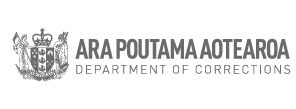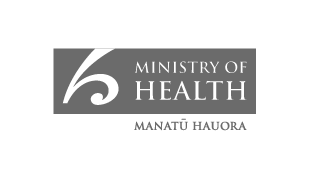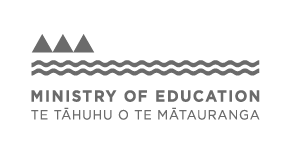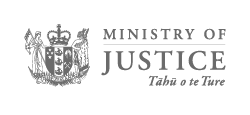The Joint Venture Business Unit was formed in 2018. Our new organisational structure and identity, Te Puna Aonui, was announced in 2022.
Here is a timeline to understand what led to the creation of these workstreams, and our mandate moving forward.
| Year | What | Why |
| 2014 | Family Violence Death Review Committee(external link) | Describes the response to family violence within Aotearoa New Zealand as isolated ‘islands of practice’, calling for an integrated approach. |
| Expert Advisory Group on Family Violence Recommendations(external link) | Expert Advisory Group is tasked with providing independent strategic advice to the Government to assist in determining key priority actions to address family violence. | |
| Proposes initiatives and reforms required for a better system that addresses family violence in Aotearoa New Zealand. | ||
| 2015 | Ministerial Group on Family Violence and Sexual Violence established(external link) | Cabinet launched a cross-government work programme involving 16 Ministers, co-chaired by the Minister of Justice and Minister of Social Development. |
| ACC - Sensitive Claims service(external link) | A multi-pronged effort to evolve and strengthen the way survivors of sexual abuse and assault are supported. | |
| Chief Victim’s Advisor role established(external link) | Dr. Kim McGregor is appointed as the first Chief Victim's Advisor, providing independent advice to the Minister for Justice. | |
| Review of Domestic Violence Act 1995(external link) | The changes will improve how we respond to family violence to keep victims safe and stop perpetrators using violence. The reforms span the civil and criminal law and are designed to ensure the law is forward looking. | |
| Progress of Ministerial Group(external link) | This paper reported progress on the work of the Ministerial Group on Family Violence and Sexual Violence and sought agreement to the proposed cross-government family violence work programme and endorsement of its sexual violence work programme. | |
| 2016 | ISR Pilots approved(external link) | Cabinet approved pilots in Christchurch and Waikato. The purpose of the ISR pilots was to take a whole-of-family and whānau approach to support adults and children impacted by violence to improve their safety, and people who use violence to prevent further harm. |
| ISR Pilot Evaluation(external link) | Feedback and evidence received showed that ISR delivered improved service response and made a positive difference for families and whānau. | |
| Budget 2016(external link) | Spending approved for new frontline services, including sexual violence. | |
| Police Whāngaia model(external link) | Whāngaia Ngā Pā Harakeke is a national framework where police, iwi and qualified kaiāwhina work in partnership to attend to and reduce family harm. | |
| 2017 | Family and Whānau Violence Bill (external link) | This bill implements the decisions announced by the Government aimed at breaking the pattern of family violence and reducing the harm and cost inflicted on those who suffer violence and wider New Zealand society, including increasing access to risk and needs assessments and services, more accurately recording family violence offending in the criminal justice system, enabling the introduction of codes of practice, and new information sharing provisions. |
| Sexual Violence Courts Pilot(external link) | The District Court ran a Sexual Violence Pilot Court in Auckland and Whangarei, implementing 'Best Practice Guidelines'. | |
| Family Violence Summit(external link) | Opportunity for people across the sector to come together and build on the conversations to date about breaking the patterns of family violence and working together effectively. Outcomes from the Summit informed the work of the Ministerial Group. | |
| Multi-Agency Team (MAT) established(external link) | Government agencies Justice, Police and Social Development were brought together to take an integrated, joined-up approach to family violence and sexual violence. | |
| Workforce Capability Framework(external link) and Risk Assessment and Management Framework(external link) |
Tools for the collective workforces to respond to family violence and sexual violence were developed by specialists from the sectors and government. | |
| Budget 2017 (external link) | Incorporated family violence law reform, Integrated Safety Response (ISR) pilots, whānau-centred family violence intervention, and E Tu Whānau(external link). | |
| Under-Secretary for Domestic and Sexual Violence role created(external link) | Jan Logie is appointed as an Under-Secretary to the Minister of Justice, with a focus on domestic and sexual violence. | |
| 2018 | Family Violence Act 2018(external link) | Recognises and gives better guidance about the nature and impact of family violence, stopping and preventing the use of violence, and keeping people – including children – safe. Names 10 government agencies and a range of social service practitioners as ‘Family Violence Agencies’ and provides a set of shared principles to guide decision making to support consistent, appropriate and timely response for all. |
| Joint Venture is established(external link) | The purpose was to help agencies provide a whole-of-government approach to violence, and work with each other, with tangata whenua, communities and the wider family violence and sexual violence sectors. | |
| Budget 2018(external link) | Funded the establishment of the Joint Venture, and supported family violence services and networks. Family violence services get $76m (50% increase for MSD providers) | |
| Interim Tē Rōpū established(external link) | To work in partnership with the Crown and enable the Joint Venture to incorporate Māori-focused solutions and aspirations for reducing family violence and sexual violence. | |
| Domestic Violence Victim's Protection Act 2018(external link) | This bill adds legal protections in the workplace for people affected by domestic violence. The Act gives employees affected by domestic violence the rights to get paid domestic violence leave, ask for short-term flexible working, and not be treated badly at work because they might be affected by domestic violence. |
|
| 2019 | Joint Venture Business Unit established | Joint Venture Director, Fiona Ross, was appointed in 2019 to establish a Joint Venture Business Unit and develop a national strategy to address family violence and sexual violence in New Zealand. |
| Budget 2019 (external link) | Successful in obtaining investment of $320.9 million over 4 years with a significant amount going to sexual violence services, and was also distributed across the following initiatives:
|
|
| Review of 2014 Family Justice Reforms(external link) and Te Uepū Hāpai i te Ora (the Safe and Effective Justice Advisory Group)(external link) | Both reviews signal changes needed in the way government responds to family violence and sexual violence. | |
| 2020 | Te Hau Tangata(external link) | Interim Te Rōpū delivered their report to guide the national strategy to the family violence and sexual violence Ministers. The temporary term of the Interim Te Rōpū ended in June 2020. |
|
Minister for the Prevention of Family Violence and Sexual Violence role established (external link) |
In a historic first, Marama Davidson was appointed to the role - a new Ministerial position outside of Cabinet - under a cooperation agreement between the NZ Labour Party and the Green Party. | |
| Budget 2020(external link) | Provided $183 million with a significant focus on funding family violence services. It also invested in services focused on children affected by violence (and their families), reflecting cross-agency advice and initiatives developed by the Joint Venture. This included a joint initiative by Police and Oranga Tamariki, funded from the COVID-19 Response and Recovery Fund. | |
| 2021 | Te Aorerekura - National Strategy for the Prevention of Family Violence and Sexual Violence(external link) |
The Joint Venture worked together to engage on and develop the National Strategy, which was launched in December. From May to June 2021 nationwide engagement with tangata whenua and a range of communities resulted in:
|
| Tangata Whenua Ministerial Advisory Board (Te Pūkotahitanga) established(external link) | The Minister announced the establishment of this group, which will provide the Minister with independent advice on family violence and sexual violence. | |
| The Joint Venture is established as an Interdepartmental Executive Board(external link) | This is to better enable collaborative responses, clear roles and responsibilities across Joint Venture agencies in order to deliver Te Aorerekura. | |
| Budget 2021(external link) | The Minister announced funding of $1.578 million in total would be allocated to support a range of community-led violence prevention intiatives. This funding will go towards Community Advisory Groups, LGBTQIA+ centred violence prevention initiatives, expanding the Safeguarding Adults from Abuse response in Waitematā, new violence prevention initiatives for migrant communities, and Age Friendly Fund, and greater capacity for diverse communities to engage with Joint Venture agencies. | |
| Sexual Violence Legislation Act 2021(external link) |
This law aims to improve the Court system and make it safer for people who have suffered sexual violence to seek justice. The law:
|
|
| 2022 | Family Violence Workforce Capability Frameworks(external link) |
Minister Davidson and the Joint Venture launched the Specialist Family Violence Organisational Standards (SOS) and the Entry to Expert Family Violence Capability Framework (E2E). |
| Tangata Whenua Ministerial Advisory Group (Te Pūkotahitanga) appointments are made (external link) | 12 members are appointed, with Dr. Maria Baker as Chair. They have a significant role in creating family violence and sexual violence systems and supports that are governed and led by, and for, tangata whenua in the best interests of their whānau, hapū, iwi and all communities. | |
| The Joint Venture becomes Te Puna Aonui(external link) | This change matures the joint way of working for government agencies, and enabled Te Puna Aonui to administer the appropriation 'Eliminating Family Violence and Sexual Violence.' | |
| First Annual Te Aorerekura Hui(external link) | Te Puna Aonui Ministers and officials hosted the first annual Hui for Te Aorerekura alongside key community and sector stakeholders. On each day of the Hui there were more than 500 people attending from government, tangata whenua, communities and specialist sectors across Aotearoa. | |
| Areyouokay.org.nz(external link) and Inyourhands.org.nz(external link) |
Formal launch of the Family Violence Online Help Tools for people impacted by violence (areyouok.org.nz) and for people who have used violence (inyourhands.org.nz) |
|
| Budget 2022(external link) |
Invests $114.52m over four years to strengthen collective action to prevent and respond to family violence and sexual violence. The package of initiatives is distributed across four broad areas:
|
|
| 2023 | Investment in ICR - Cyclone Gabrielle |
Investment into Community Lead Solutions to support and enhance community-based responses to family violence by providing funding for initiatives from the ICR Learning and Implementation Funds including $1 million in relational commissioning funding to whānau impacted by or at risk of family violence and sexual violence following the floods and cyclone |
| Love Better Youth Campaign(external link) |
Formal launch of the national primary prevention campaign for young people (16-24-years-old) aimed at fostering safe, positive, and equal relationships |
|
| Expert Advisory Group for Children and Young People established | To design child and youth participation in Te Aorerekura. | |
| Budget 2023(external link) |
Delivering our first family violence and sexual violence Budget package as an Executive board – $74.5m. Half of the Family Violence and Sexual Violence package is going toward initiatives that will help address service gaps for disabled people, tamariki and rangatahi, and tangata whenua. |
|
| Second Annual Te Aorerekura Hui(external link) | 721 people registered to attend the Hui, in-person or online. The Hui theme was Ako tahi: Learning together. | |
| Outcomes and Measurement Framework (OMF)(external link) |
Defines national outcomes and the indicators that will be used to measure progress to implement the shifts in Te Aorerekura – the National Strategy to Eliminate Family Violence and Sexual Violence. The OMF will support government and public understanding about progress, to help shape planning and investment. |
|
| 2024 | Action Plan 2025-2030 | In December 2024, the Government launched the second Te Aorerekura Action Plan. This continues the implementation of the 25-year strategy, with an Action Plan that will guide the work of government agencies through to 2030. |
| 2025 | Risk and Safety Practice Framework (RSPF) | The safety and wellbeing of people, whānau, and families is everyone’s responsibility. Reducing risk and enabling safety requires a whole-of-community response and a capable, coordinated system working together to protect victim-survivors and promote the accountability of people using violence. |
Last modified:








